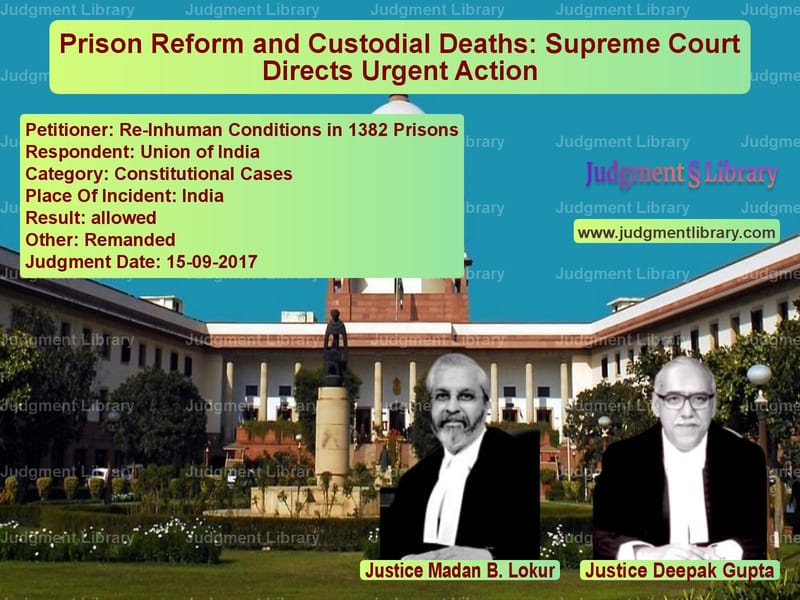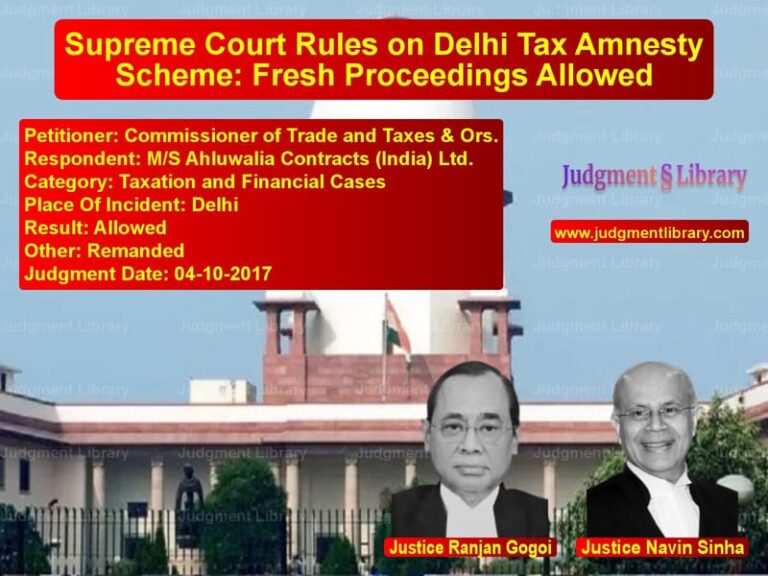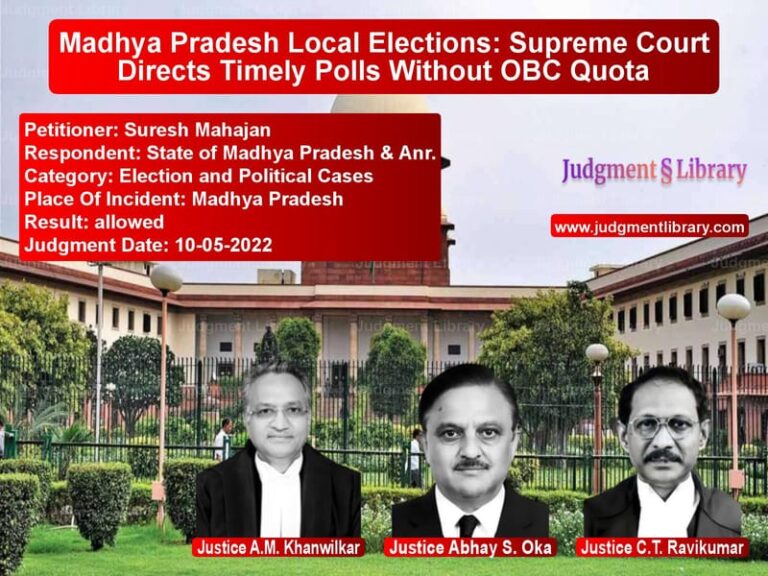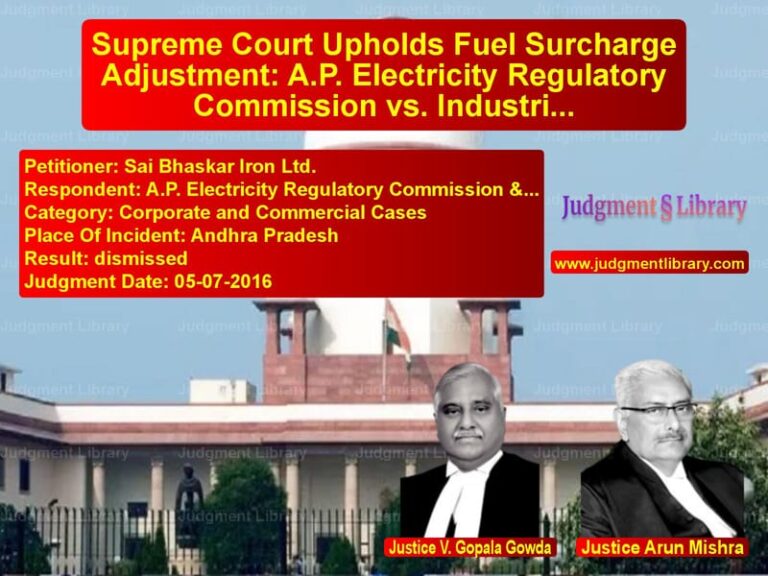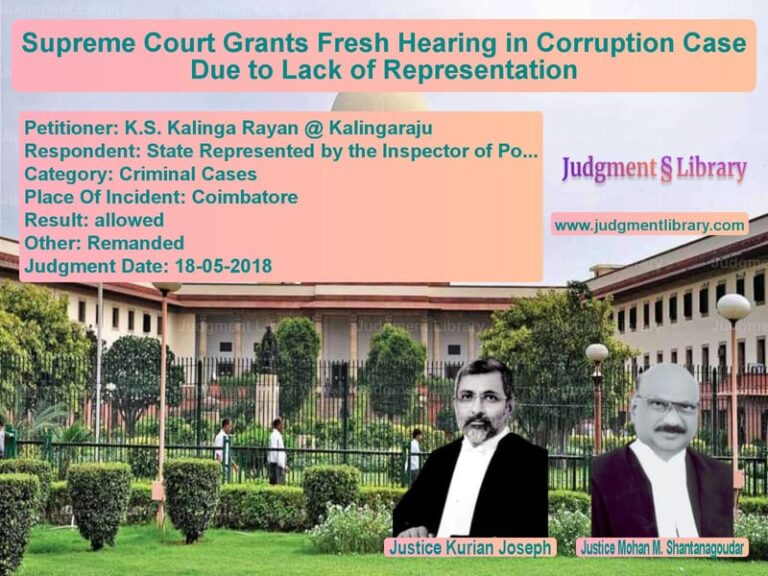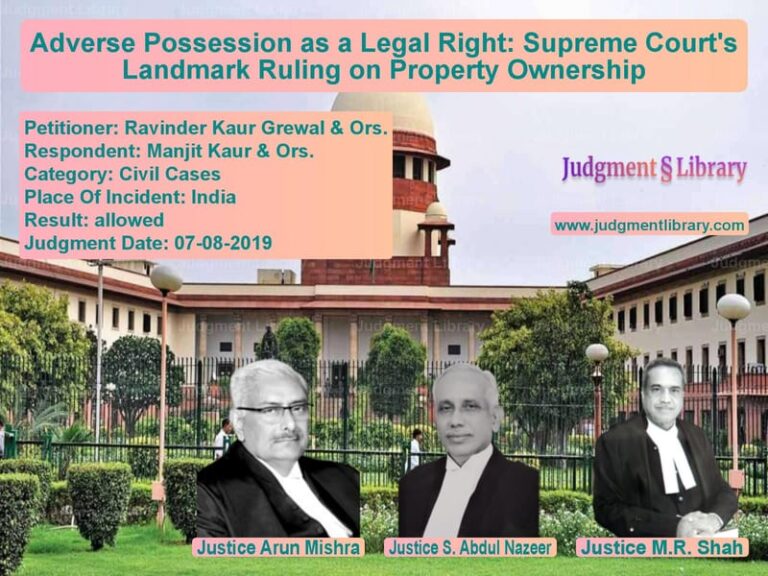Prison Reform and Custodial Deaths: Supreme Court Directs Urgent Action
The case of Re-Inhuman Conditions in 1382 Prisons is a landmark judgment addressing the urgent issue of custodial violence, unnatural deaths in prisons, and the overall inhumane conditions in correctional facilities across India. The Supreme Court, through this judgment, sought to bring forth reforms and enforce accountability for the treatment of prisoners.
Background of the Case
This case originated from a letter by former Chief Justice R.C. Lahoti highlighting the dire conditions prevailing in Indian prisons. The letter, which was treated as a public interest litigation (PIL), emphasized four key issues:
- Overcrowding in prisons
- Unnatural deaths of prisoners
- Gross inadequacy of staff
- Untrained and inadequately trained staff
The Supreme Court took cognizance of these pressing issues and initiated proceedings to address the systemic failures leading to custodial violence and deaths.
Arguments Presented
Petitioners’ Arguments (Amicus Curiae and Human Rights Organizations):
- The increasing number of unnatural deaths in Indian prisons highlights the failure of prison administration.
- Prisoners are entitled to fundamental rights, including the right to life and dignity under Article 21 of the Constitution.
- Most custodial deaths are a result of torture, denial of medical care, and inhumane treatment.
- The National Crime Records Bureau (NCRB) statistics lack transparency in classifying natural and unnatural deaths.
- State governments and prison authorities have ignored the guidelines set by the National Human Rights Commission (NHRC).
Respondents’ Arguments (Union of India and State Governments):
- Prison reform is a state subject, and each state has its own prison rules and management system.
- Unnatural deaths in prisons are rare and often due to external factors such as fights between inmates or health issues.
- The government is implementing reforms, including setting up medical facilities and psychological counseling for inmates.
- Many deaths occur due to pre-existing health conditions rather than custodial violence.
Supreme Court’s Ruling
A bench comprising Justice Madan B. Lokur and Justice Deepak Gupta issued strong directives aimed at overhauling the prison system. The key points from the judgment were:
- Custodial violence is a serious violation of human rights and must be addressed with urgency.
- The state bears the responsibility for the well-being of prisoners and must ensure proper medical care and humane treatment.
- The government must clarify the classification of custodial deaths as ‘natural’ or ‘unnatural’ and provide detailed statistics.
- The National Crime Records Bureau (NCRB) must sub-categorize ‘unnatural deaths’ to determine whether they were due to suicides, murders, medical negligence, or police brutality.
- Compensation must be provided to the families of prisoners who die unnaturally in custody.
- Each High Court must initiate suo motu proceedings to identify cases of unnatural deaths and award suitable compensation.
- The Model Prison Manual 2016, NHRC guidelines, and United Nations’ Nelson Mandela Rules for the treatment of prisoners must be implemented in all states.
- Independent boards of visitors should be constituted in all prisons, including non-official members, to ensure transparency and oversight.
- Use of video conferencing and telephone facilities must be increased to allow prisoners to communicate with their families and lawyers.
Important Extract from the Judgment:
“Custodial violence and unnatural deaths in prisons are serious violations of human rights and fundamental rights under Article 21 of the Constitution. It is the duty of the State to ensure that no prisoner loses their life due to negligence, brutality, or lack of medical care while in custody.”
Implications of the Judgment
This ruling has far-reaching consequences for the prison administration system in India:
- It ensures greater accountability and transparency in reporting custodial deaths.
- It mandates state governments to improve prison conditions and provide medical facilities.
- It upholds the fundamental rights of prisoners, reinforcing the principle that incarceration does not mean loss of dignity.
- It introduces stricter regulations for granting bail to undertrial prisoners to reduce overcrowding.
- It holds prison authorities accountable for any negligence leading to the death of inmates.
Conclusion
The Supreme Court’s ruling in this case is a milestone in the fight for prison reforms in India. The judgment serves as a reminder that human rights apply to all individuals, including those behind bars. The directives issued by the Court aim to make prisons more humane and to ensure that custodial deaths become a thing of the past. The decision mandates a shift from punitive measures to rehabilitative and reformative approaches in prison administration, aligning with global standards of human rights and justice.
Don’t miss out on the full details! Download the complete judgment in PDF format below and gain valuable insights instantly!
Download Judgment: Re-Inhuman Condition vs Union of India Supreme Court of India Judgment Dated 15-09-2017.pdf
Direct Downlaod Judgment: Direct downlaod this Judgment
See all petitions in Fundamental Rights
See all petitions in Public Interest Litigation
See all petitions in Separation of Powers
See all petitions in Judgment by Madan B. Lokur
See all petitions in Judgment by Deepak Gupta
See all petitions in allowed
See all petitions in Remanded
See all petitions in supreme court of India judgments September 2017
See all petitions in 2017 judgments
See all posts in Constitutional Cases Category
See all allowed petitions in Constitutional Cases Category
See all Dismissed petitions in Constitutional Cases Category
See all partially allowed petitions in Constitutional Cases Category

